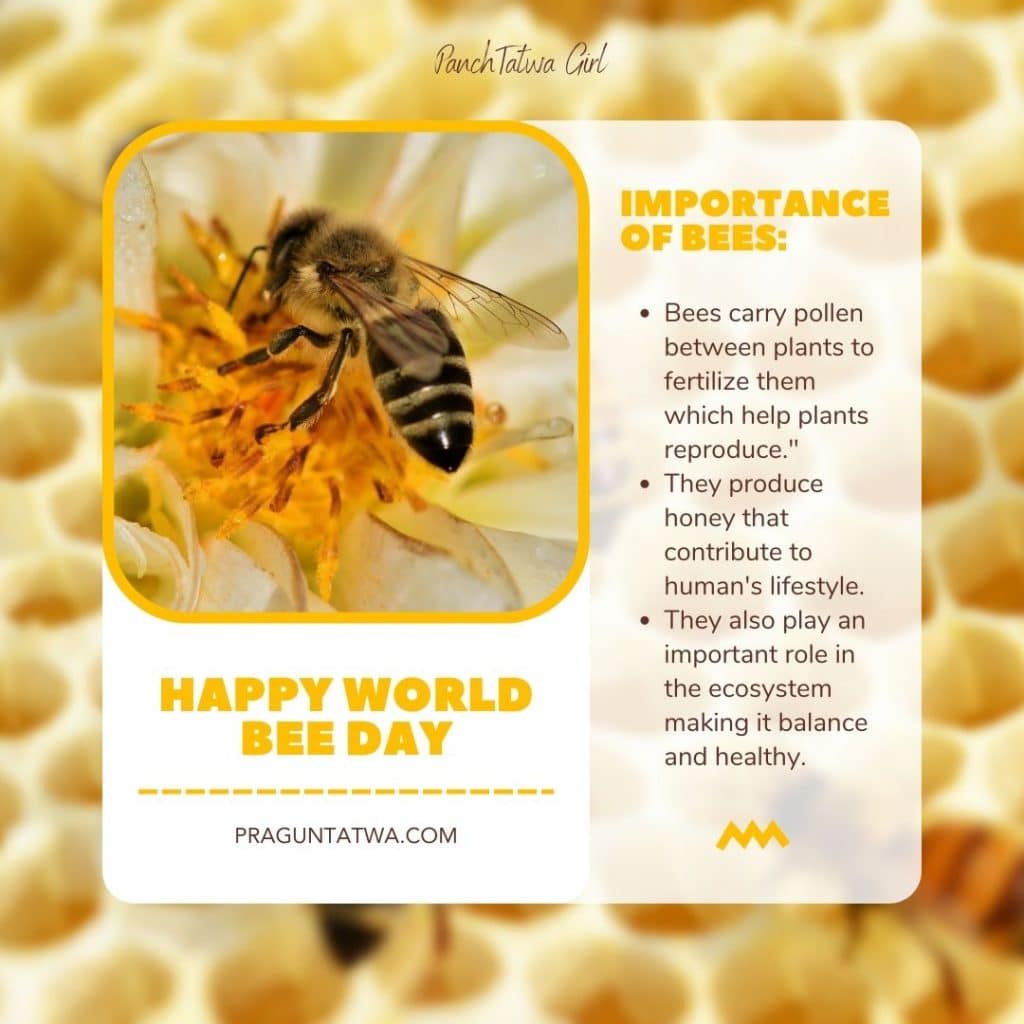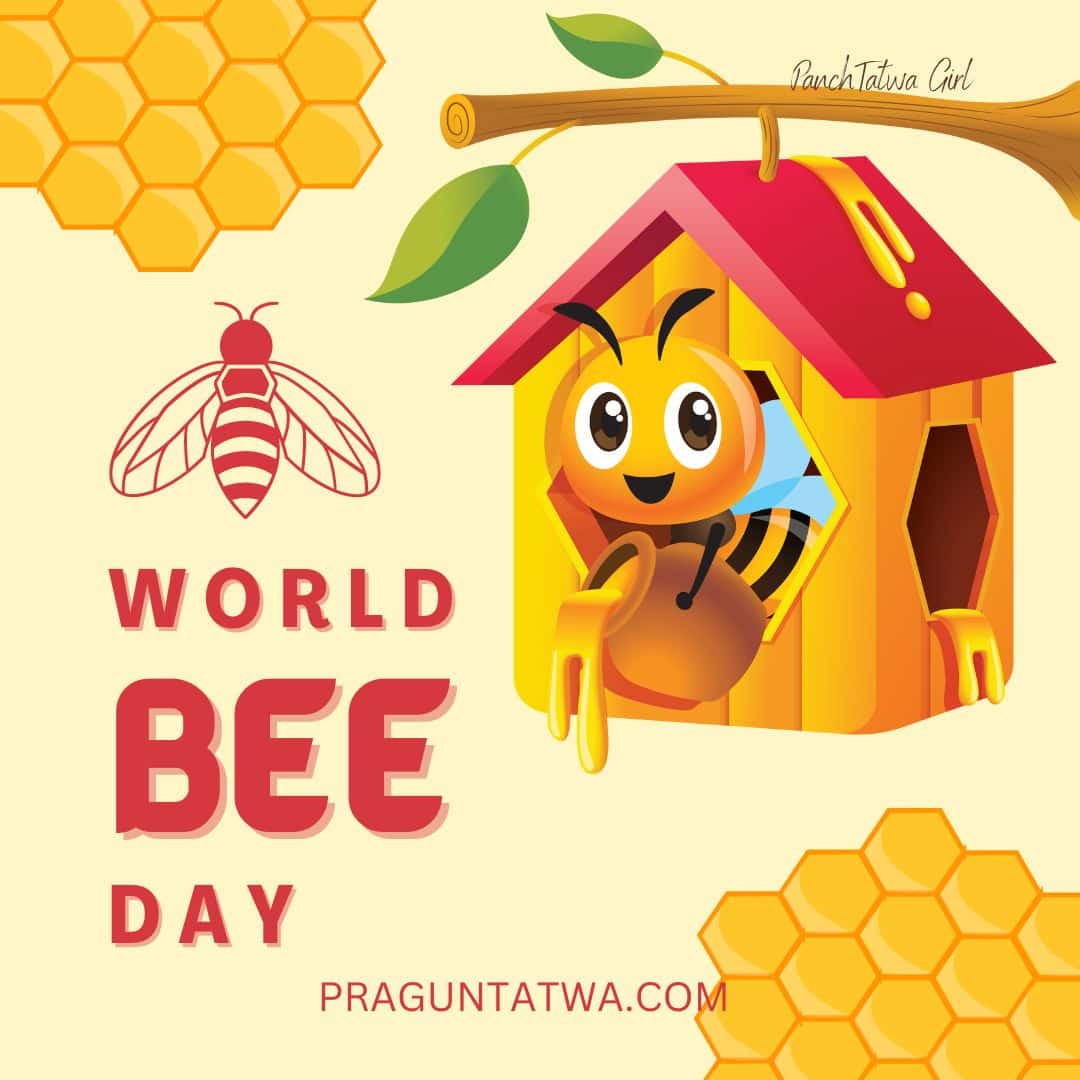World Honey Bee Day, also known as World Bee Day, is an annual observance that celebrates the importance of honey bees and other pollinators to our ecosystems, agriculture, and food production. It is typically held on the third Saturday of August each year. This year it is on 19th August 2023. The day aims to raise awareness about the critical role that bees play in sustaining life on Earth and to promote efforts to protect and conserve bee populations.
The observance of World Honey Bee Day began as a grassroots movement to recognize the contributions of honey bees and other pollinators. It has gained global recognition and has become an opportunity for educational events, workshops, community activities, and campaigns to inform people about the challenges facing bees and the ways they can contribute to their conservation.
Lorenzo Lorraine Langstroth (December 25, 1810 – October 6, 1895) was an American apiarist, clergyman, and teacher, and considered to be the father of American beekeeping.

Some common themes and activities associated with World Honey Bee Day include:
- Educational Workshops: Many organizations, schools, and community groups hold workshops and educational events to teach people about the importance of bees, their role in pollination, and the challenges they face.
- Pollinator Garden Planting: Communities and individuals may come together to plant pollinator-friendly gardens with native plants that provide food and habitat for bees and other pollinators.
- Honey Tastings: Events may include tastings of various types of honey to showcase the diversity of flavors that bees produce based on the plants they pollinate.
- Beekeeping Demonstrations: Beekeepers may offer demonstrations to educate the public about beekeeping practices, the role of beekeepers, and the importance of maintaining healthy bee colonies.
- Art and Craft Activities: Some events involve arts and crafts related to bees and pollination, helping to engage children and adults in creative ways.
- Promotion of Bee-Friendly Practices: World Honey Bee Day often serves as a platform to raise awareness about the factors contributing to bee declines, such as pesticide use, habitat loss, and climate change. People are encouraged to adopt bee-friendly practices, such as reducing pesticide use, planting bee-friendly gardens, and supporting local beekeeping efforts.
- Policy Advocacy: Some events may focus on advocating for policies and regulations that protect pollinators and their habitats.
The goal of World Honey Bee Day is to inspire people to take action, whether it’s through small lifestyle changes or larger initiatives, to contribute to the conservation of pollinators and their ecosystems. Bees and other pollinators are vital to our food supply, biodiversity, and overall ecological balance, making their protection a critical priority for a sustainable future.
Bees play a critical role in our ecosystem and are essential for both natural ecosystems and human survival due to their role in pollination, which is the process of transferring pollen from one flower to another, enabling the reproduction of plants.
Here’s why bees are so important:
- Pollination of Plants: Many of the world’s food crops and wild plants rely on pollination by bees and other pollinators to produce fruits, vegetables, nuts, and seeds. Approximately one-third of the food we eat depends on pollination, and bees are among the most effective pollinators.
- Biodiversity: Bees help maintain biodiversity by facilitating the reproduction of various plant species. This, in turn, supports the health and balance of ecosystems. Without proper pollination, some plant species would decline, which could have cascading effects on other animals and plants in the ecosystem.
- Agriculture and Food Production: In agricultural systems, bees significantly increase crop yields and quality. Many crops, such as almonds, apples, blueberries, and melons, depend heavily on bee pollination. The increased yield and quality of these crops contribute to food security and agricultural economies.
- Nutrition: Bees help produce a wide variety of nutritious foods, including fruits, vegetables, and nuts, which are vital components of a healthy diet. Their pollination services contribute to the availability of diverse and nutritious food sources.
- Economic Impact: The agricultural industry relies heavily on bee pollination, contributing billions of dollars to the global economy each year. The presence of healthy bee populations supports job creation and economic growth in rural communities.
- Ecosystem Services: Bees play a role in maintaining ecosystems and their services, such as soil health, water purification, and wildlife habitat. Their activities contribute to the overall health and stability of ecosystems.
- Medicinal Plants: Bees also pollinate many plants used in traditional and modern medicine. Some medicinal plants rely on specific bee species for pollination, making bees crucial for the production of herbal remedies and pharmaceuticals.
- Genetic Diversity: The movement of pollen between plants by bees helps maintain genetic diversity within plant populations. This genetic diversity is important for plants to adapt to changing environmental conditions and to resist diseases and pests.
- Climate Resilience: Bees and other pollinators support plant growth, which in turn helps mitigate climate change by absorbing carbon dioxide and releasing oxygen. Healthy ecosystems with diverse plant populations can contribute to a more stable climate.
- Education and Awareness: The decline of bee populations in recent years has drawn attention to the importance of pollinators in our ecosystems. This has led to increased awareness and efforts to protect and conserve bee populations and their habitats.
In recent years, there has been a concerning decline in bee populations due to factors such as habitat loss, pesticide exposure, climate change, and disease. To ensure the continued survival of bees and their vital role in our ecosystems, it’s crucial to support conservation efforts, promote sustainable agricultural practices, and create bee-friendly habitats.
From My Green Bag
To sum up, This is my conscious lifestyle post to spread more awareness about sustainable living and eco-friendly choices. Join me for more such ways and tips and become part of my Conscious and sustainable living journey. Keep visiting my blog to make yourself eco-friendly, aware of conscious and sustainable choices and be more concerned for our environment, and alter your lifestyle.
To add on, read and join Sustainability with Prachi series and listen to interviews with Eco-conscious people who are trying their bit towards conscious and sustainable living practices only on Green Tatwa Talks. There is so much to learn and explore from all of them I had interacted with, do listen and drop in your views in the comments. Check here to know more about all the Eco-Friendly dates.
Keep visiting.
Being Eco-Friendly is not a choice, make it a habit.
Without a doubt, sustainability is easier than you think. You don’t have to jump in by changing everything, start small to make the changes more eco-friendly, sustainable and a part of your daily life.

Leave a Reply